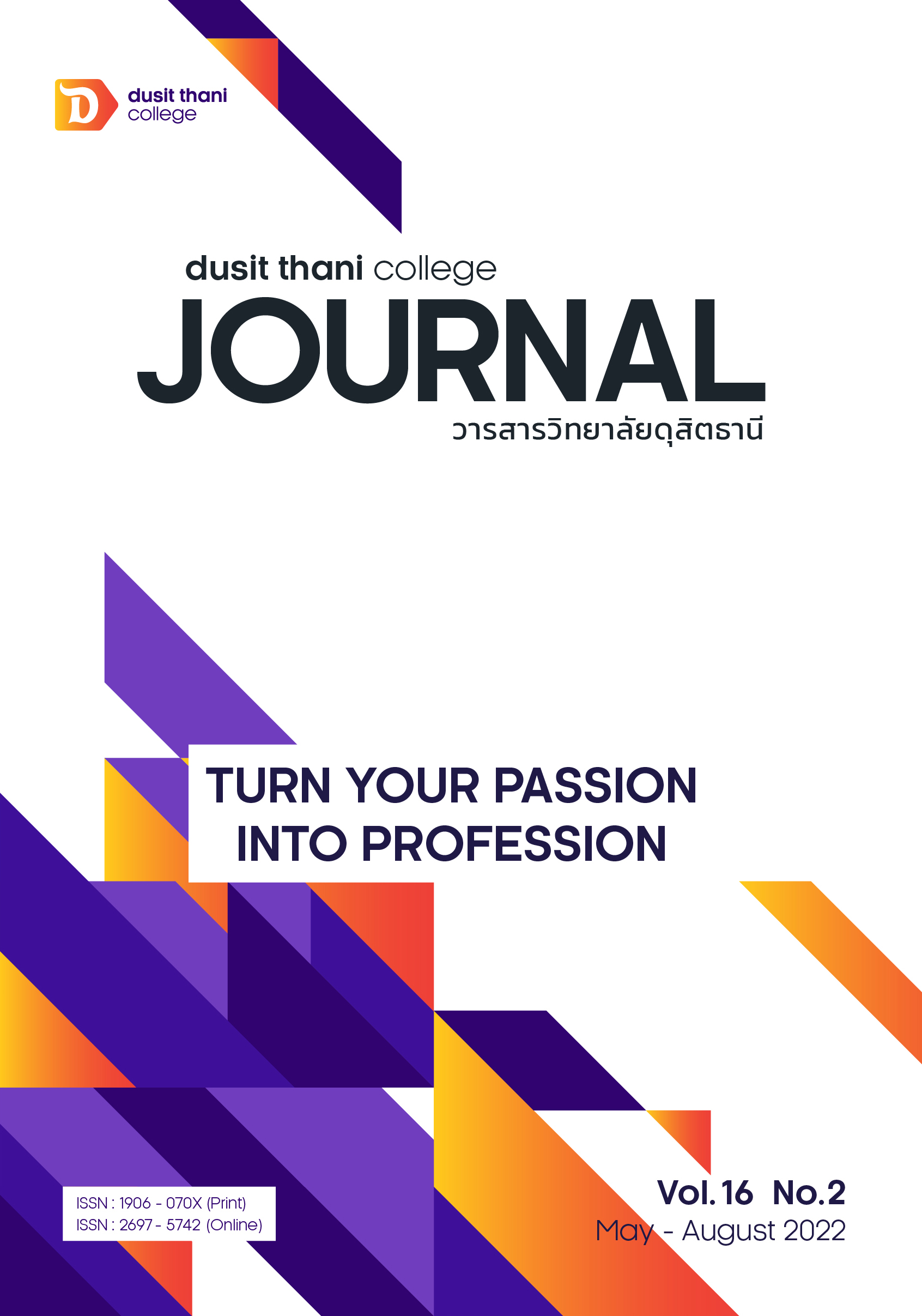Applying the Concept of Quality Management to Build Competitiveness of MICE Destinations for MICE Organizers
Main Article Content
Abstract
This academic paper aims to present the process of developing MICE destinations for organizers through an analysis of qualitative management principles in the Deming Cycle (PDCA) which is a tool used to create operational processes to achieve goals and to develop competitiveness. It is used to analyze the satisfaction of the organizers who have the potential to support the MICE event at the destination. which is the factor that results in the success of the goals set and the marketing mix concept that plays a role in the marketing strategy to effectively meet the needs of the organizers. Therefore, this concept is considered an important idea to determine the direction of the MICE destinations development, to create competitiveness for the destination and impress leading to the return of the event again. Any destination that is interested in driving the MICE industry to the area, whether it is a MICE city or a destination that is ready to support MICE events, can apply the development process in planning. Strategic design, assessment and follow-up to achieve effective results, to add value during operations to become a new competitive capability in the future.
Article Details

This work is licensed under a Creative Commons Attribution-NonCommercial-NoDerivatives 4.0 International License.
Article Screening Policy
- All research and academic articles to be published must be considered and screened by three peer reviews in the relevant field / article.
- All articles, texts, illustrations and tables published in the journal are the personal opinions of the authors. Editors don't always have to agree. And no responsibility whatsoever is the sole responsibility of the author.
- The articles to be published must never be published. Where did you first publish? And not in the consideration of other journals If the audit found that there has been a duplicate publication It is the sole responsibility of the author.
- Any article that the reader sees as being plagiarized or impersonated without reference. Or mislead the work of the author Please let the journal editor know it will be your greatest blessing.
References
Armstrong, G., Adam, S., Denize, S.M., Volkov, M. & Kotler, P. (2014). Principles of marketing. Malaysia: Pearson Australia Group Pty Ltd.
Bauer, T, Law, R. Tse, T. and Weber, K. (2007). Research in brief Motivation and satisfaction of mega-business event attendees The case of ITU Telecom World 2006 in Hong Kong. International Journal of Contemporary Hospitality Management. 2(20), 228 – 234.
Boonfu, S. and Kanchanawong, A. (2012) . The Participation in Educational Quality Assurance of Educational. Bangkok: Maejo University.
Deming, W. E. (1986). Out of the Crisis. Cambridge: MIT Press.
Jeong, Y. and Kim, S. (2020). A study of event quality, destination image, perceived value, tourist satisfaction, and destination loyalty among sport tourists. Asia Pacific Journal of Marketing and Logistics, 4(32), 940 – 960.
Kotler, P. (1997). Principles of Marketing. New Jesey: Prentice-Hall,Lnc.
Kotler, P. (2003). Marketing management. (11th ed.). Upper Saddle River, NJ: Prentice-hall,Lnc.
Marchoo, W. (2021). A Potential Development of Surat Thani to be Thailand MICE City. Journal of Yala Rajabhat University, 1(17), 89 -97.
Morse, N. C. (1953). Satisfactions in the White Collar Job. Michigan : University of Michigan Press.
Neamhom, N. (2017). The Marketing-Mix Factors Influencing the Decision-Making of the Students in Taking Vocational Education at Viboon Business Administration Technological College (VBAC), Ram-Indra. Bangkok: krirk university.
Ngammak, P. (2020). Guideline for Human Resource Development in MICE Industry. Humanities and Social Sciences Journal. 1(11), 165 – 177.
Panmanee, A. (2003). Creative psychology. Bangkok: Yamai Eddu Kate Publishing.
Pattana, P., Yupin, P. and Jeerasak, T. (2020). Concepts of Satisfaction and Construction of Job Satisfaction Questionnaire, APHEIT Journal. 1(26), 59 -66.
Sereerat, s. and Laksitanonsuporn, P. (1998). Marketing Strategy and Marketing Management. Bangkok: Diamond in Business World.
Soonsan, N., Prawram, N., Krootsong, K. and Kongjam, P. (2017). MICE Industrial Educational Cluster Development in Southern of Thailand. Dusit Thani College Journal. 11, 229 - 248.
Thailand Convention and Exhibition Bureau (Public Organization). (2018). MICE has different meanings. in Hathaithip Hongchukiat (Editor), MICE doesn't mean rat. (No.14). Bangkok: Thailand Convention and Exhibition Bureau (Public Organization).
Thailand Convention and Exhibition Bureau (Public Organization). (2019). Thailand ranked 4th in Asia in terms of international conferences, Q2, earning more than 50 billion baht, TCEB continues to create revenues of 2.2 billion baht, May 15, 2019, from website https://www.businesseventsthailand.com/th/press-media/news-press-release/detail/877-thailand -soars-to-asia-s-no-4-for-international-convention
Thailand Convention and Exhibition Bureau (Public Organization). (2021) . Criteria for assessing a city for a MICE City. Bangkok: Thailand Convention and Exhibition Bureau (Public Organization).
Wolman, B. B. (1973). Dictionary of Behavioral Science. London: Litton Educational.


